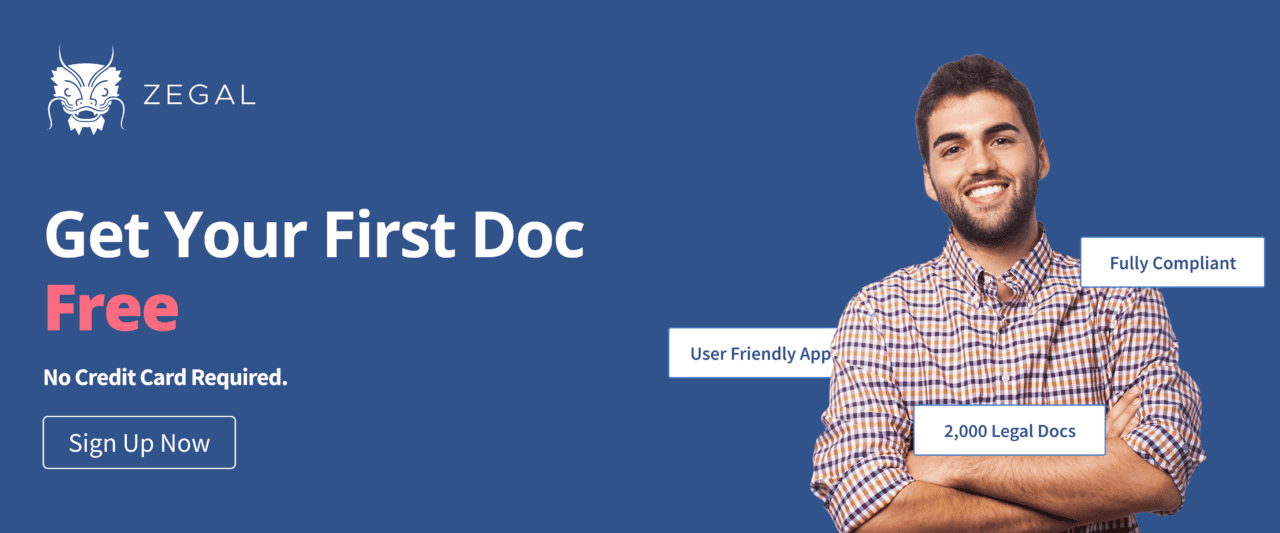Tom Odlin
Tom is a dynamic marketing professional passionate about legal technology and the web. With extensive experience driving marketing strategies and leveraging cutting-edge tech innovations, Tom enhances brand visibility and engagement. Tom has been writing about business and legal topics for the better part of a decade.
Need any help? Contact us:

Table of Contents
Startups are increasingly relying on advanced technology to drive innovation and growth. While AI offers numerous advantages in terms of efficiency and scalability, legal compliance and strategy are critical aspects that require human expertise.
1. Understanding the complex legal landscape
Lawyers deeply understand legal nuances, which AI has yet to replicate fully.
Legal professionals stay abreast of new laws and regulations, which can vary significantly across different jurisdictions, and provide the necessary guidance to ensure compliance.
2. Interpreting ambiguity and grey areas
AI is exceptional at processing precise, rule-based tasks. However, the law often involves interpreting ambiguities and grey areas.
Human legal experts excel at understanding the implications of such nuances and can provide advice on how to approach these uncertainties.
This level of interpretation is crucial for startups to make informed decisions that align with legal and ethical considerations, such as data privacy and algorithmic bias.
3. Negotiation and relationship-building
Whether they involve contracts, partnerships, or resolving disputes, negotiations require a human touch. Lawyers bring persuasion, negotiation, and relationship-building skills to the table.
These interpersonal skills are vital in the legal world, where success often hinges on negotiating favourable terms and maintaining positive relationships with stakeholders.
4. Risk assessment and strategy
Startups must navigate various risks, from intellectual property issues to regulatory compliance. Human legal experts are pivotal in identifying potential risks and developing mitigation strategies.
While AI can assist in identifying patterns and potential issues, human judgment is critical in assessing the severity of these risks and devising a strategic response.
5. Getting the contracts right
Relying solely on AI for drafting contracts like NCNDAs and employment contracts poses significant risks.
AI systems are programmed based on existing laws and precedents, but they cannot interpret changes in statutes or understand new legal precedents as they emerge.
Moreover, AI cannot engage in the nuanced judgment calls often required in legal drafting, leading to contract gaps or oversights, leaving the startup vulnerable to legal challenges.
Understanding the limitations in handling NCNDAs
NCNDAs protect business interests, especially for startups dealing with proprietary technology and sensitive information.
Drafting these agreements requires a nuanced understanding of the specific business context, potential risks, and the legal framework governing confidentiality and non-circumvention.
While efficient in processing standardised information, AI tools cannot fully grasp the subtleties and implications unique to each startup’s situation. Human legal experts can tailor these agreements, addressing specific concerns and ensuring robust protection.
Complexities in employment contracts
Employment contracts are another area where the human legal touch is indispensable. These documents must comply with varying employment laws and encapsulate the employment terms, including roles, responsibilities, remuneration, benefits, and termination conditions.
The complexity lies in balancing legal compliance with the unique policies and culture of the startup. AI cannot effectively negotiate these complexities, particularly in adapting to the ever-changing legal landscapes and special organisational needs.

Why human insight is irreplaceable
While AI can be a valuable tool in managing certain legal operations, AI startups should know the importance of human legal expertise, especially when creating legal documents.
Human lawyers bring a depth of understanding, critical thinking, and adaptability that AI cannot match. Furthermore, context, intention, and the subtleties of language are paramount in legal matters.
Legal matters require a nuanced understanding, strategic insight, and adaptability to ensure contracts are legally sound and align with the startup’s needs and goals.
An intelligent collaboration between AI efficiencies and human legal acumen remains the most effective approach.





